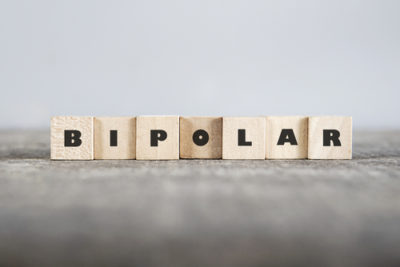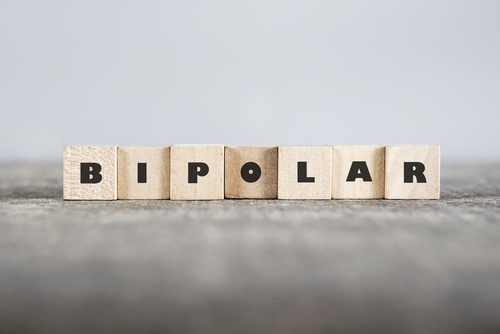How to Tell if You’re Bipolar
Bipolar disorder is a mental health condition that affects many individuals across America. Due to its varying mental symptoms, it can be quite difficult to diagnose, especially in its earlier stages.
If you believe you may be suffering from bipolar disorder, please know you are n
In order to know if you’re bipolar, you must first understand what is bipolar disorder, the associated symptoms, and learn about the different stages. With this knowledge, you will be able to make a more informed decision on how to proceed in seeking help from a health professional.
What is Bipolar Disorder?
Bipolar disorder is a lifelong mental health condition that causes episodes of emotional lows (depressive episodes) and highs (mania or hypomania episodes). These extreme mood swings can have a profound effect on an individual’s life. The depressive episodes cause feelings of hopelessness, a loss of interest in activities, and an overwhelming feeling of sadness. The mania or hypomania, which is a less extreme version of mania, can cause an individual to feel energetic or even euphoric in some cases. Both types of mood swings can have a noticeable effect on an individual’s life. A person with bipolar disorder may have a difficult time making decisions, falling asleep, controlling their energy, making judgments, and managing their behaviors.
Bipolar disorder is often treated with a combination of psychotherapy and medications. However, there are several different types of bipolar and related disorders to be aware of as the treatment plan and path forward will be different. If you are concerned that you are bipolar, seek professional help from a mental health facility to mitigate symptoms.
Symptoms of Bipolar Disorder
- Bipolar I Disorder: Individuals suffering from bipolar I disorder usually have a manic episode that is followed by a hypomanic or major depressive episode. In some individuals, psychosis will also develop.
- Bipolar II Disorder: Individuals suffering from bipolar II disorder will usually experience at least one major depressive episode and one hypomanic episode. The distinction from bipolar I disorder to this one is that the individual never experiences a manic episode.
- Cyclothymic Disorder: Individuals suffering from a cyclothymic disorder will have periods of depressive symptoms (less severe than major depression) and hypomania symptoms for at least two years. In children and teens, this timeline is reduced to one year.
Major Depressive Episode Characteristics
There are many symptoms that are linked to a major depressive disorder. The symptoms that characterize a major depressive episode will be noticeable and will likely disrupt daily life. According to Mayo Clinic, a major depressive episode will include 5 or more of the following symptoms.
- Fatigue or energy loss
- Restlessness or slowed behavior
- Excessive sleep or insomnia
- Noticeable loss of interest or pleasure in all activities
- Depressed mood, characterized by feeling sad, tearful, hopeless, and/or empty. In children and teens, this can also manifest as irritability.
- Significant weight loss when not dieting, weight gain, noticeable increase or decrease in appetite. In children, this may manifest as a failure to gain weight.
- Feelings of excessive or inappropriate guilt
- Feelings of worthlessness
- Reduced ability to concentrate
- Thinking about, planning, or attempting suicide
Mania and Hypomania Episode Characteristics
While mania and hypomania are two distinct types of bipolar episodes, they share the same symptoms, though the severity of the symptoms will be heightened in a manic episode. A manic episode will often interrupt daily life. According to Mayo Clinic, both mania and hypomania episodes will include 3 or more of the below symptoms.
- Unusual talkativeness
- Distractibility
- Racing thoughts
- Elevated mood
- Abnormal upbeatness, jumpiness, or appearing wired
- Increased energy, activity, or agitation
- An exaggerated sense of self-confidence and well-being (euphoria)
- Decreased need for sleep
- Poor decision-making, such as engaging in risky sexual behavior, going on a shopping spree, or making irrational judgments in financial matters
Getting Help
If your friend needs help with their bipolar disorder, contact a health professional as soon as possible. If it is you who is showing signs of bipolar disorder, just know you are not alone. Talk to a family member or someone you trust about what you are experiencing. From there, it is highly advised to seek professional treatment.
When you are ready, call us so we can discuss our variety of treatment programs at Beach House Recovery.
Sources:
- Mayo Clinic. “Bipolar Disorder.” Retrieved from https://www.mayoclinic.org/diseases-conditions/bipolar-disorder/symptoms-causes/syc-20355955.
- Medical News Today. “How to Spot the Symptoms of Bipolar Disorder.” Retrieved from https://www.medicalnewstoday.com/articles/312143.php.
- National Institute of Mental Health. “Bipolar Disorder.” Retrieved from https://www.nimh.nih.gov/health/topics/bipolar-disorder/index.shtml.

